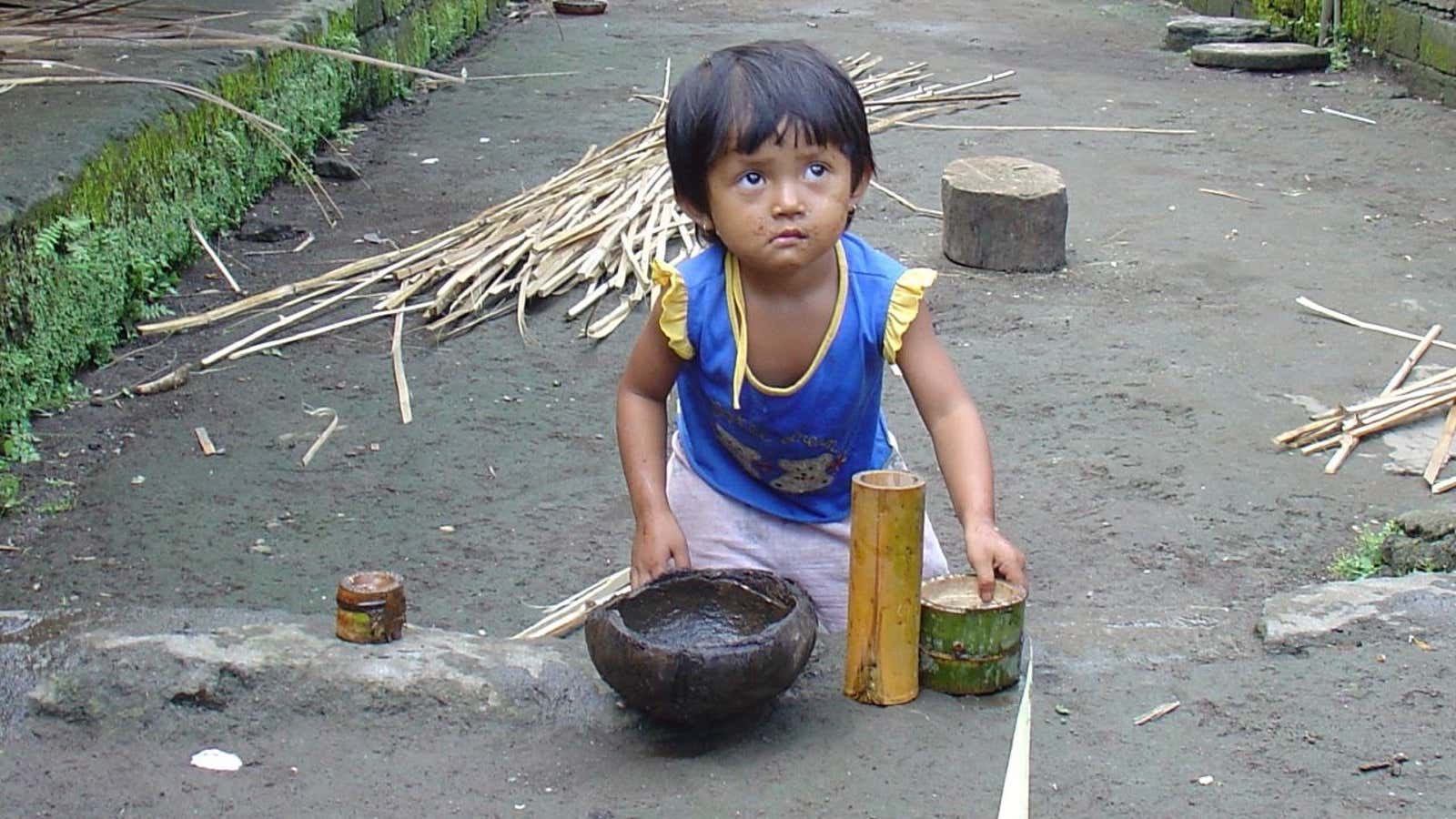Little did the sellers know what dangerous toys they were selling. In markets in Yogyakarta—a charming city on Indonesia’s Java island where colorful horse-drawn carriages still share the road with cars—local authorities recently seized toys bearing Soviet flags and hammer-and-sickle motifs, fearing they could spread Communism.
“We’re worried that the symbols could be attractive to our children over time. If that happens, then the ideals could enter their minds,” said Lt. Col. Kavaleri Tumadi, in the Jakarta Globe.
Police didn’t provide any information about what toys, exactly, they had seized. But history can help explain the sensitivity to communism, which isn’t exactly a threat to Southeast Asia’s largest economy. This year is the 50th “anniversary” of an event the Indonesian government would prefer to forget: the military-led massacre of supposed communists in 1965-66 that killed hundreds of thousands across the archipelago nation.
Indonesia is the world’s most populous Muslim majority nation and communism has been banned there since the massacre, which was sparked by a coup attempt blamed on the communist party. Many Indonesian Muslims believe “showing communist leanings would betray their religion,” as the Voice of America explained last year.
Sensitivity about the anniversary also affected the annual Ubud Writers and Readers Festival, held from Oct. 28 to Nov. 1. Government officials pressured the organizers to cancel a series of events marking the massacre. That included the screening of The Look of Silence, an award-winning documentary by Joshua Oppenheimer that follows up on his 2012 documentary The Act of Killing. In the latter, some of the now-old perpetrators of the massacre unabashedly, even gleefully, re-enact their crimes for the camera.
Indonesian president Joko Widodo recently denied rumors that the government was preparing to apologize to the victims of the massacre and their families.
At least the vendors themselves weren’t seized. Then again, most were clueless about what the symbols meant, and were hardly trying to indoctrinate local children into communist ways of thinking.
The baffled toy sellers in Yogyakarta were warned to be more vigilant when ordering stock in the future.
Image above by Flickr user amanderson2, licensed under CC-BY-2.0.
